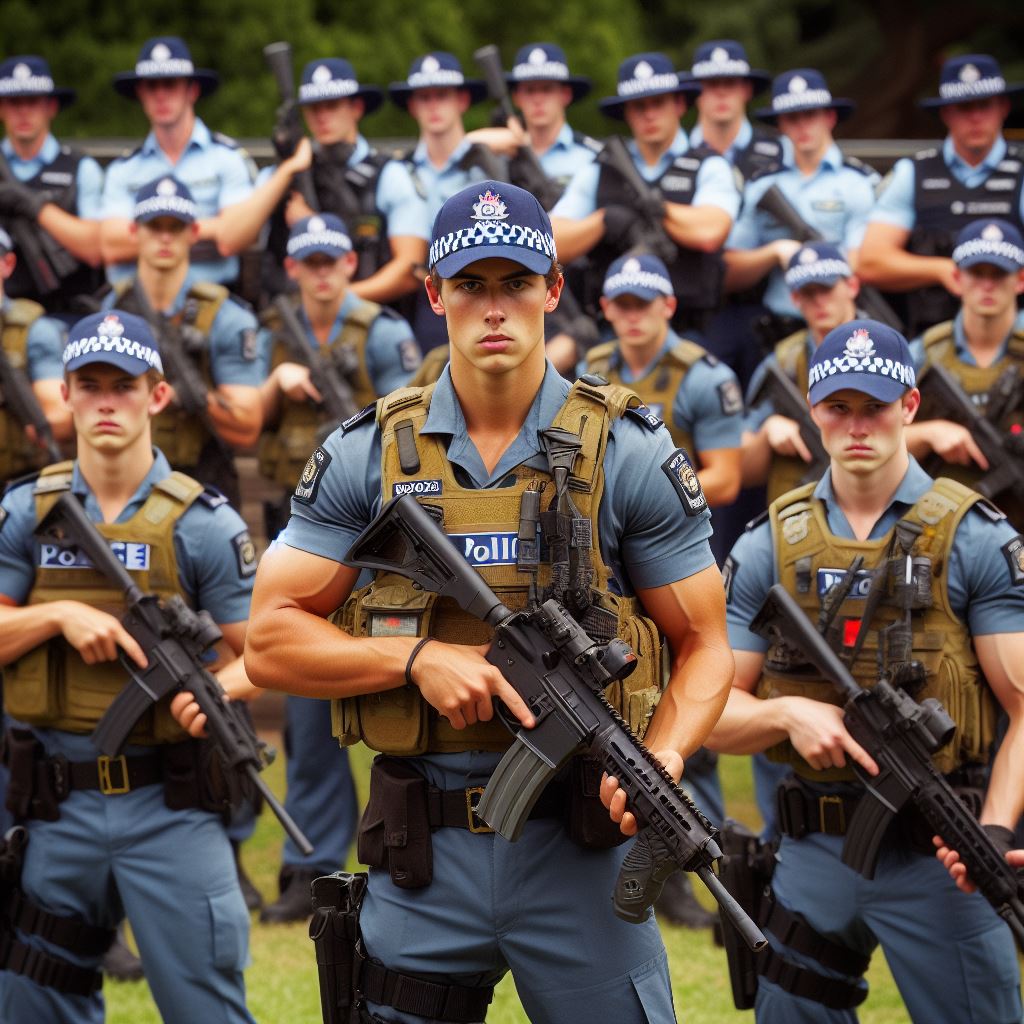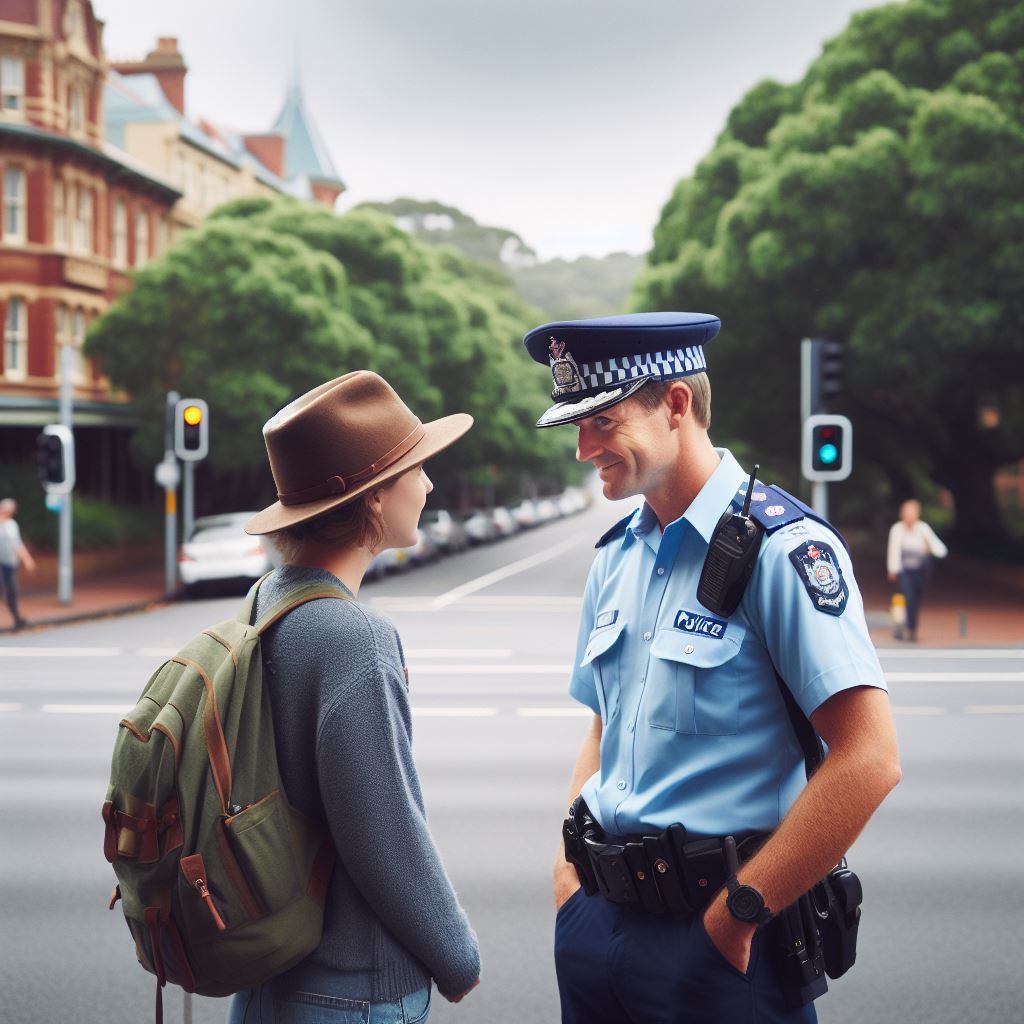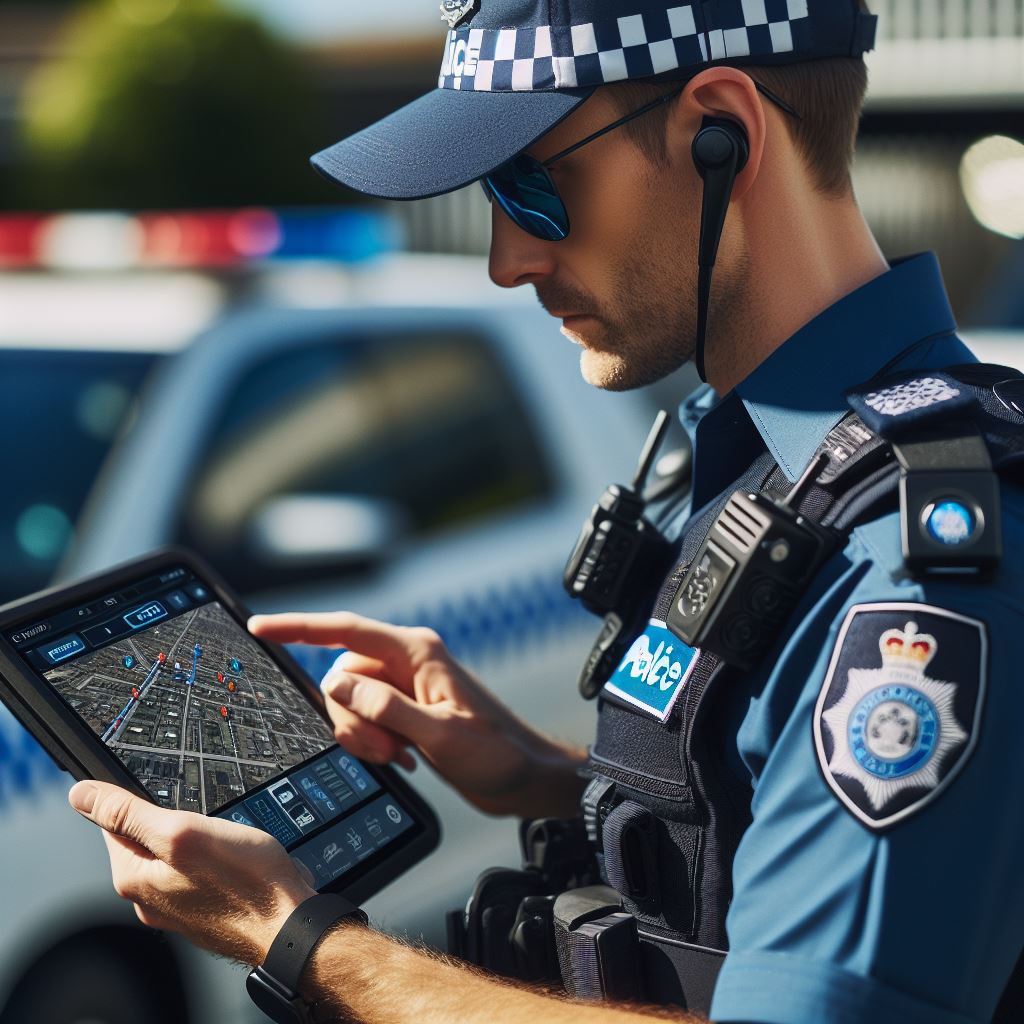Introduction
The role of police in Australian communities is of utmost importance.
This blog post will provide a brief overview of the content discussing their significance.
The role of police in Australian communities cannot be underestimated.
They play a crucial role in maintaining law and order, ensuring the safety and security of citizens.
With their presence, communities can thrive and prosper.
This blog post aims to shed light on the importance of the role of police in Australian communities.
It will explore the various aspects of their duties and responsibilities, as well as the impact they have on society.
One of the key roles of the police is to enforce laws, apprehend criminals, and prevent crime.
They serve as a deterrent, making individuals think twice before engaging in unlawful activities.
Their proactive measures contribute to a sense of security among the public.
Additionally, the police act as mediators, resolving disputes and helping maintain harmony within communities.
They provide support and assistance during emergencies, ensuring prompt response to incidents that threaten the well-being of citizens.
The role of police extends beyond crime prevention and law enforcement.
They also engage in community policing, fostering relationships and trust between the police and the public.
This collaborative approach promotes better understanding, leading to successful crime prevention strategies.
In essence, the role of police is vital in Australian communities.
Their presence and actions contribute to a safe and peaceful environment.
This blog post will dive further into the significant impact they have on Australian society and the importance of their continuous efforts.
Historical Development of Police in Australia
Early origins of law enforcement in Australia
- During the early colonization period, law enforcement was primarily carried out by military and naval personnel.
- The first formal police force in Australia was created in New South Wales in 1789 to control convicts and maintain order.
- These early police officers were known as ‘night watchmen’ and their main duties included patrolling the streets at night.
The establishment of modern police forces in different states/territories
- In the 19th century, other colonies in Australia established their own police forces.
- Victoria established its police force in 1853, followed by Queensland (1864), South Australia (1838), and Western Australia (1851).
- By the early 20th century, all states and territories in Australia had their own police forces, each with a distinct jurisdiction.
Evolution of the role and responsibilities of police over time
- Initially, the primary role of police was to maintain public order, enforce the law, and prevent crime.
- As Australian society evolved, the role of police expanded to include various tasks such as traffic regulation and crime investigation.
- With the introduction of community policing in the late 20th century, police became more involved in working closely with local communities.
- Today, the responsibilities of police extend beyond traditional law enforcement to include community engagement, crime prevention, and social welfare.
In a nutshell, the historical development of police in Australia has seen significant advancements from the early origins of law enforcement in the colony to the establishment of modern police forces in different states and territories.
The role and responsibilities of police have also evolved over time, reflecting the changing needs and expectations of Australian society.
From mere night watchmen to community-oriented law enforcement officers, the Australian police have played a crucial role in maintaining public safety and order.
Read: Crisis Management in Diplomacy
Functions and Duties of Police in Australian Communities
In this section, we will explore the various functions and duties of police officers in Australian communities.
Crime prevention and control
- Police officers patrol neighborhoods to deter crime and ensure public safety.
- They respond promptly to emergency calls and provide assistance to those in need.
Police officers play a crucial role in crime prevention and control in Australian communities. Through regular neighborhood patrols, they actively deter criminal activities and ensure the safety of residents.
Their presence alone serves as a deterrent, discouraging potential offenders from committing crimes.
In addition to patrolling, police officers also respond to emergency calls. They are trained to handle various types of emergencies, including medical crises, accidents, and incidents requiring immediate attention.
Their quick response time can often make a difference in saving lives and preventing further harm.
Maintaining public order and safety
- During public events, police officers are responsible for crowd control to prevent disturbances.
- They enforce traffic regulations to ensure smooth flow and safety on the roads.
Maintaining public order and safety is another vital duty of the police. During public events such as festivals, rallies, or sporting matches, large crowds gather, increasing the risk of disturbances or potential conflicts.
Police officers are responsible for managing and controlling these crowds, ensuring that everyone can enjoy the event without fear or disruption.
Furthermore, police officers regulate and enforce traffic laws to prevent accidents and maintain smooth traffic flow. They monitor road conditions, detect and apprehend drivers who violate traffic rules, and educate the public about safe driving practices.
Their presence on the roads contributes to a safer and more organized transportation system.
Investigation and apprehension of offenders
- Police officers gather evidence and conduct inquiries to solve crimes and identify perpetrators.
- They have the authority to make arrests and detain individuals suspected of committing offenses.
When crimes occur, police officers take on the crucial role of investigation and apprehension.
They gather evidence, interview witnesses, and conduct inquiries to identify and build a case against the perpetrators.
Their expertise in forensic science and investigative techniques is instrumental in solving crimes and bringing offenders to justice.
In cases where the evidence is sufficient, police officers have the authority to make arrests and detain individuals suspected of committing offenses.
This power enables them to remove dangerous individuals from the community and ensure public safety.
However, it is important to note that arrests are made based on evidence and within the confines of the law, underlining the importance of due process and the protection of individual rights.
In fact, the functions and duties of police officers in Australian communities are diverse and essential.
From preventing and controlling crime to maintaining public order, safety, and investigating offenses, police officers play a crucial role in keeping the community safe and secure.
Read: Diplomatic Immunity: The Basics
Collaboration with the Community
Police forces across Australia recognize the importance of collaboration with their local communities.
By actively engaging with residents and forging partnerships with other organizations, the police can ensure effective law enforcement while building trust and fostering a safer society.
Engaging with local residents
One of the key ways police officers collaborate with their communities is through community policing initiatives.
These initiatives focus on developing partnerships between the police and residents, working together to address community concerns and maintain public safety.
- Community policing initiatives: Through these programs, police officers become more integrated into the community they serve.
- Building trust and relationships: By actively participating in community events and activities, police officers establish trust and build positive relationships with local residents.
Engaging with local residents is essential as it allows the police to gain a deeper understanding of the specific needs and concerns of the community.
It also provides an opportunity for residents to voice their concerns and collaborate with the police in finding effective solutions.
Partnerships with other organizations
In addition to engaging with local residents, police forces in Australia foster partnerships with various organizations to enhance community safety.
- Collaboration with schools and youth programs: By working closely with educational institutions and youth programs, police officers can address issues such as juvenile delinquency and bullying.
- Cooperative efforts with social services, healthcare providers, etc.: Police forces collaborate with various organizations to provide comprehensive support for individuals in need.
Collaborating with schools and youth programs allows the police to engage with young people, promoting positive relationships and discouraging involvement in criminal activities.
By creating a safe and supportive learning environment, the police can help ensure a brighter future for the community’s youth.
Partnerships with social services, healthcare providers, and other organizations offer a multi-faceted approach to address the root causes of crime and provide support to vulnerable individuals.
By working together, they can identify and assist those in need, providing the necessary resources and interventions to improve their circumstances.
Basically, collaboration with the community is vital for the role of police in Australian communities.
By actively engaging with local residents and forging partnerships with other organizations, the police create a safer environment while fostering trust and building strong relationships.
Through community policing initiatives and collaborative efforts, the police can address specific concerns, prevent crime, and provide holistic support to individuals in need.
Your Personalized Career Strategy
Unlock your potential with tailored career consulting. Get clear, actionable steps designed for your success. Start now!
Get StartedRead: How to Become a Police Officer in Australia

Uncover the Details: Australian Police’s Role in Emergencies
Learn More: Police Officers’ Mental Health Support
Challenges Faced by Police in Australian Communities
In order to effectively carry out their duties, police in Australian communities face various challenges. These challenges can hinder their ability to maintain law and order within the society.
Two significant challenges they encounter are dealing with diverse populations and addressing emerging crime trends.
Dealing with diverse populations
Cultural sensitivity and understanding
One of the challenges faced by the police in Australian communities is the cultural diversity within the society. Australia is a multicultural nation, with people from various ethnic backgrounds residing in different regions.
Policing such diverse populations requires cultural sensitivity and understanding. Police officers must be knowledgeable about different cultures, customs, and traditions to bridge any gaps in communication and prevent misunderstandings.
They must respect and acknowledge cultural diversity when interacting with community members.
Language barriers and communication difficulties
Language barriers pose another obstacle to effective policing in Australian communities. The diverse population includes individuals with limited English proficiency or non-English speaking backgrounds.
This creates communication difficulties for the police when interacting with community members, especially during critical situations or emergencies.
Overcoming these language barriers requires the police to employ interpreters or utilize language assistance services to ensure effective communication and maintain trust within the community.
Addressing emerging crime trends
Cybercrime and technology-related challenges
Another challenge faced by the police in Australian communities is the emergence of cybercrime and technology-related offenses.
The advancement of technology has brought with it new forms of crime, such as identity theft, online fraud, and cyberbullying. Police officers need to be equipped with the necessary skills and knowledge to investigate these crimes effectively.
They must stay updated on the latest technological advancements and employ digital forensic techniques to gather evidence and apprehend offenders involved in cybercrimes.
Drug-related offenses and substance abuse
The increasing prevalence of drug-related offenses and substance abuse is a significant challenge for the police in Australian communities.
Illicit drug use poses grave risks to individuals and communities, contributing to various criminal activities and public health issues.
Police officers must combat drug-related offenses by conducting effective surveillance, intelligence gathering, and enforcement operations.
Additionally, they need to work closely with community organizations, healthcare professionals, and addiction treatment services to address the underlying issues of substance abuse through prevention programs and rehabilitation efforts.
In review, the role of the police in Australian communities is accompanied by challenges that can hinder their ability to maintain law and order effectively.
The challenges of dealing with diverse populations and addressing emerging crime trends, such as cultural sensitivity and understanding, language barriers, cybercrime, and drug-related offenses, require the police to continually adapt and enhance their skills and strategies to ensure the safety and well-being of the communities they serve.
Read: Day in the Life of an Aussie Police Officer
Enhancing Policing Strategies and Community Safety
The role of the police in Australian communities goes beyond mere law enforcement. It encompasses crime prevention, community engagement, and ensuring the safety and well-being of its citizens.
Enhancing policing strategies and community safety requires a multifaceted approach, incorporating both technological advancements and fostering strong community involvement.
Implementing Technological Advancements
- Utilizing analytics and data-driven approaches to improve policing strategies.
- Enhancing the use of body-worn cameras and surveillance systems to increase accountability.
In today’s technologically advanced world, law enforcement agencies are increasingly utilizing analytics and data-driven approaches to identify crime hotspots, patterns, and trends.
By using sophisticated software programs, police can analyze historical data and identify potential areas where crime is likely to occur.
This proactive approach allows them to allocate resources more effectively, deter criminal activities, and respond to incidents promptly.
Furthermore, body-worn cameras and surveillance systems play a vital role in maintaining transparency and accountability within the police force.
These devices provide video evidence that can be used in investigations, increase trust between the community and the police, and help resolve any disputes or complaints.
Implementing and expanding the use of such technology can greatly enhance community safety by deterring misconduct and ensuring responsible police behavior.
Promoting Community Involvement and Education
- Implementing public awareness campaigns to educate the community about their role in promoting safety.
- Establishing neighborhood watch programs to encourage community members’ active participation in crime prevention.
Community involvement and education are crucial elements in maintaining a safe and cohesive society.
The police need the support and cooperation of the community to effectively combat crime and build trust.
Public awareness campaigns can educate citizens about their role in promoting safety, encouraging them to report suspicious activities, and providing them with the necessary knowledge to protect themselves and their property.
Additionally, neighborhood watch programs have proven to be successful in fostering community engagement and preventing crime.
These programs encourage residents to collaborate with local law enforcement, forming a network of vigilant community members who actively look out for each other’s well-being.
By participating in these programs, citizens become the eyes and ears of the police, contributing to a safer environment for everyone.
In general, enhancing policing strategies and community safety in Australia requires a combination of technological advancements and community involvement.
Implementing analytics and data-driven approaches can help law enforcement predict and prevent crime effectively.
Furthermore, the use of body-worn cameras and surveillance systems can increase transparency and accountability within the police force.
Simultaneously, promoting community involvement through public awareness campaigns and neighborhood watch programs empowers citizens to actively contribute to crime prevention efforts.
By working together, the police and the community can create a safer and more secure environment for all Australians.
Stand Out with a Resume That Gets Results
Your career is worth more than a generic template. Let us craft a resume and cover letter that showcase your unique strengths and help you secure that dream job.
Get HiredConclusion
In closing, the role of police in Australian communities is of utmost importance.
They play a crucial role in ensuring the safety and well-being of the public.
Police officers serve as guardians, enforcing laws and maintaining order in society.
They provide a sense of security, allowing people to live their lives without fear.
Police presence helps deter crime and offers reassurance to community members.
Furthermore, the police act as mediators during conflicts, de-escalating tensions and promoting peace.
They collaborate with communities, building trust and fostering positive relationships.
Through community engagement initiatives, police officers work hand in hand with residents.
By understanding local concerns and needs, they can better address issues affecting the community.
Together, police and communities can create safer environments and tackle social problems.
The ongoing support and collaboration between police and communities is vital in achieving this.
Community members should report any suspicious activities and provide information to assist police investigations.
It is important to recognize that police officers are public servants dedicated to serving and protecting the community.
By working together, we can strengthen the relationship between police and communities and create safer neighborhoods for all.
Transform Your LinkedIn for Maximum Impact
Elevate your professional brand with a LinkedIn profile that attracts recruiters, showcases your expertise, and maximizes opportunities. Stand out in your industry with a profile built for success.
Boost Profile



